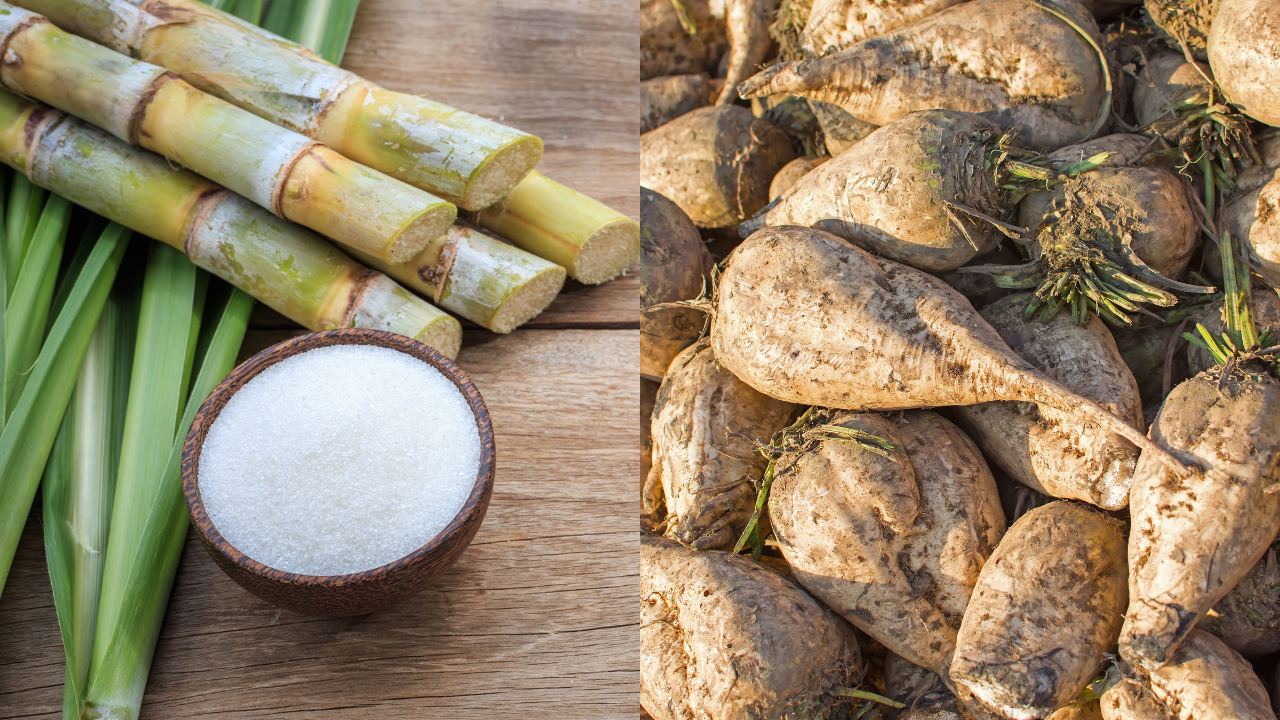Many chefs specify either beet sugar vs cane sugar, depending on the intended outcome.
Many chefs specify either beet sugar vs cane sugar, depending on the intended outcome.
Blog Article
Discovering the Differences in operation and Advantages In Between Beet Sugar Vs Cane Sugar
In the cooking globe, the choice between beet sugar and cane sugar is not just concerning sweet taste yet involves a nuanced consideration of taste, application, and impact. While both sugars stem from different plants, each undertakes unique manufacturing procedures that discreetly influence their features and suitability for different meals.
Origins and Production Procedures of Beet and Cane Sugar

Cane sugar, on the various other hand, comes from the sugarcane plant, an exotic grass native to Southeast Asia however now cultivated in tropical zones worldwide - beet sugar vs cane sugar. The manufacturing of cane sugar begins with the harvesting of cane stalks, which are crushed to release the juice.

Nutritional Content and Health Considerations

When contrasting the dietary content of beet sugar and cane sugar, it becomes obvious that both kinds basically provide the same caloric worths, with about 16 calories per teaspoon and no significant nutrient diversity. Each is made up virtually totally of sucrose, which is an easy carb that uses quick power yet does not have vitamins, minerals, or fiber. This similarity includes their influence on health, specifically worrying blood sugar degrees. Both sugars, when eaten in excess, can add to raised blood sugar levels, a risk variable for diabetes mellitus and various other metabolic conditions. In addition, excessive consumption can bring about weight gain and oral issues, as both sugars are just as cariogenic, advertising dental cavity. From a health and wellness perspective, moderating consumption of any type of kind of sugar, whether from beet or cane, is recommended to stay clear of these possible adverse results on well-being. Hence, neither holds an unique benefit over the other in terms of wellness advantages.
Taste Accounts and Culinary Applications
Despite their similar chemical frameworks, beet sugar and cane sugar differ subtly in flavor, which can influence their use in different cooking contexts. Walking cane sugar commonly lugs a hint of molasses, even in its refined kind, offering a warm, caramel-like undertone that boosts baked products, coffee, and chocolate-based recipes. On the various other hand, beet sugar is characterized by its highly improved, neutral taste, making it a functional sweetener that does not alter the flavor profiles of dishes.
Ecological Impact and Sustainability
While both beet and cane sugars are acquired from plants, their environmental effects differ considerably due to the distinct approaches of growing and processing needed for each. Sugar beet farming usually involves extensive automation, which can read review boost fossil fuel usage and carbon discharges.
Moreover, the handling of sugarcane typically produces a considerable quantity of waste, including bagasse, which, although usable as biofuel, regularly adds to air pollution if burned inefficiently. Sugar beet processing uses more of the raw materials, resulting in less waste. Both sectors face challenges in reducing their environmental footprints, but continuous advancements in agricultural methods and waste management are aiming to improve sustainability.
Economic Variables Affecting the Sugar Market
The financial characteristics of the sugar industry are substantially affected by international market needs and profession plans. Variables such as tariffs, subsidies, and global trade arrangements play essential roles in shaping the competitive landscape. In regions where sugarcane or sugar beet manufacturing is subsidized, producers might have a monetary benefit that enables them to offer reduced prices on the international market. This can develop variations in productivity and market access for producers in nations without such subsidies.
In addition, variations in international demand for sugar, affected by nutritional fads and industrial use in food, straight effect rates and manufacturing levels. beet sugar vs cane sugar. Weather likewise play a crucial function, as they can considerably affect crop returns and, as a result, the supply chain. This variability presents a level of financial uncertainty that can result in financial investment volatility in sugar production markets, affecting choices from growing to market strategy
Final Thought
In verdict, both beet and cane sugar have special qualities that suit various culinary demands. While cane sugar conveys a rich taste have a peek here suitable for improving baked products, beet sugar's neutrality is excellent site for lighter meals.
Report this page